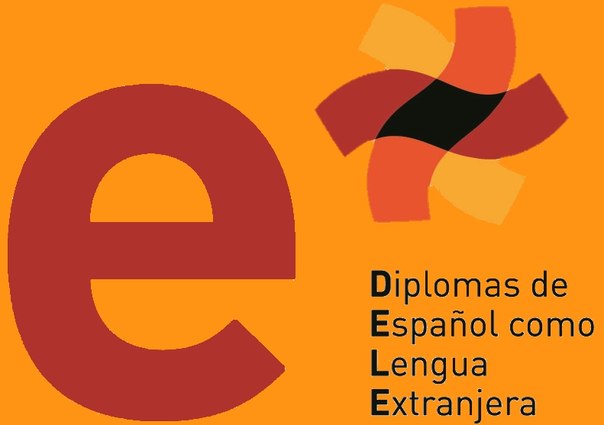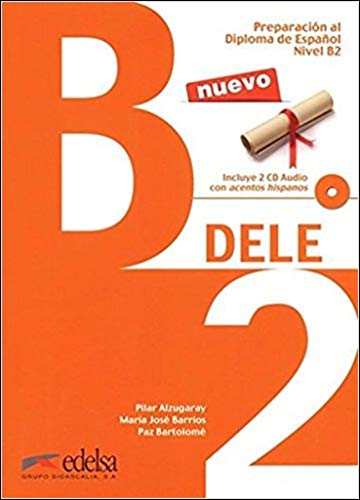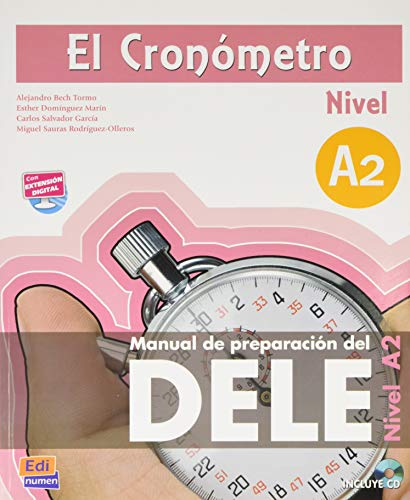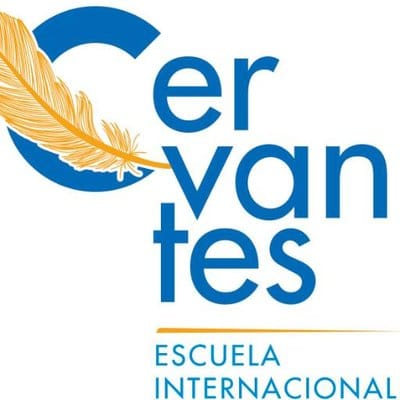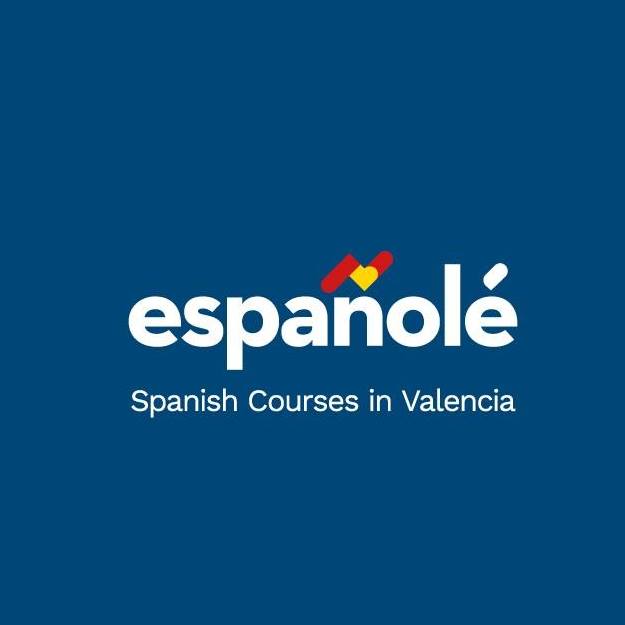Диплом по испанскому языку (DELE) — документ, официально подтверждающий уровень компетенции и владения испанским языком, который выдает Министерство образования, культуры и спорта Испании.
За организацию и проведение мероприятия отвечает Институт Сервантеса, а Университет Саламанки (Испания) разрабатывает экзамены, проверяет их и оценивает конечный результат.
Мы предоставляем вам возможность подготовиться к экзамену DELE в лучших школах испанского языка, которые проводят подготовительные курсы DELE.
Диплом по испанскому языку делятся на 6 уровней, в зависимости от степени владения языком:
- Диплом по испанскому языку A1 (Уровень выживания)
Подтверждает, что ученик готов к элементарному общению и может удовлетворить коммуникативные потребности, возникающие в конкретных и предсказуемых ситуациях каждодневного общения.
- Диплом по испанскому языку A2 (Предпороговый уровень)
Подтверждает, что ученик понимает повседневные предложения и обороты часто встречающиеся в особо значимых для него сферах жизни (при обмене информацией о себе, своих родных, покупках, достопримечательностях, роде занятий и т. д.).
- Диплом по испанскому языку B1 (Пороговый уровень)
Подтверждает способность ученика понимать основные идеи четких текстов, составленных на литературном языке, на известные темы, типично возникающие на работе, учебе, досуге;общаться в большинстве ситуаций, которые могут возникнуть во время поездки в страну изучаемого языка;составлять простые связные сообщения на знакомые или особо интересующие темы; описывать впечатления, события, надежды, стремления, обосновывать свое мнение и рассказывать о планах на будущее.
- Диплом по испанскому языку B2 (Пороговый продвинутый уровень)
Подтверждает способность ученика достаточно быстро и спонтанно, общаться с носителями языка без особых затруднений для любой из сторон;составлять четкие, подробные сообщения на различные темы, отстаивать свою точку зрения по общим вопросам, взвешивать преимущества и недостатки различных вариантов, а также улавливать главные идеи сложных текстов на абстрактные и конкретные темы, в том числе по узкоспециальным вопросам, относящимся к его специальности.
- Диплом по испанскому языку C1 (Уровень профессионального владения)
Подтверждает наличие достаточной лингвистической компетенции для восприятия объемных, довольно сложных текстов на различную тематику и раскрытия их глубокого значения; беглой и спонтанной речи, без особых затруднений в подборе нужных выражений; гибкого и эффективного использование языка для общения в научной и профессиональной деятельности; способности создавать точные, детальные, хорошо выстроенные сообщения на относительно сложные темы, демонстрируя владение моделями организации текста, средствами связи и объединением его элементов.
- Диплом по испанскому языку C2 (Уровень владения в совершенстве)
Подтверждает наличие достаточной лингвистической компетенции для полностью эффективного общения практически в любой ситуации с проявлением спонтанной адаптации к любым обстоятельствам и высоким уровнем точности.Ученик умеет подчеркивать оттенки значений, объясняется бегло и естественно.
На этих страницах вы найдете всю необходимую информацию об экзамене DELE и записи на экзамен с любой части мира.
Чтобы поступить в испаноязычный вуз или устроиться на работу, надо сдать DELE — экзамен по испанскому для иностранцев. Летом 2013 года структура экзамена претерпела некоторые изменения. «Теории и практики» собрали информацию и полезные советы, которые позволят справиться с этим испытанием.
Что это такое
Диплом DELE (Diplomas de Espanol como Lengua Extranjera) официально выдается Институтом Сервантеса от имени Министерства образования и культуры Испании после сдачи одноименного экзамена и подтверждает знание испанского языка на уровне, соответствующем освоенному языковому материалу.
Экзамен фиксирует шесть уровней владения языком, которые делят на три группы: Inicial (начальный: A1 — A2), Intermedio (средний: B1 — B2) и Superior (продвинутый: C1 — C2). Сдавать DELE можно на любой из стадий изучения языка.
Чтобы поступить в испаноязычный вуз, надо сдать экзамен на уровне B2 (уверенное владение испанским для общения в любых ситуациях, не требующих использования специализированной лексики) или C1 (свободное владение языком, умение спонтанно поддержать разговор на любую тему). Для поступления на PhD в некоторых вузах нужно сдать С2 (знание испанского на высшем уровне, включающим способность использовать специфическую специализированную и узкотематическую лексику). Для трудоустройства на работу, требующую владения языком на бытовом уровне, достаточно В2.
Как сдавать
Каждый уровень экзамена состоит из заданий, скомпонованных в группы по проверяемым в них навыкам. Экзамен B2 — самый популярный уровень для поступления в вузы — состоит из двух блоков.
Чтение + письмо + грамматика
На задании по чтению нужно прочесть несколько текстов и выбрать правильные ответы на прилагающиеся к ним вопросы, уложившись в 70 минут. Первый текст — адаптированная статья (слово «адаптированная» не должно расслаблять участников — вся адаптация в основном сводится к сокращению объема текста) из испанской или латиноамериканской газеты. После чего нужно пройти задание на multiple choice, где нужно разобраться в сюжете и логике текста. Второй текст состоит из четырех фрагментов — как правило, мини-интервью, и в задании нужно отметить, кто из спикеров о чем говорил. Затем — текст с длинными пропусками, которые нужно заполнить, правильно расставив восемь фраз, следующих ниже.
Раздел, посвященный лексике и грамматике также предполагает multiple choice: нужно заполнить пропуски в тексте, выбирая из предложенных вариантов. И, наконец, письменная часть состоит из двух заданий. Первое — написать письмо объемом 150-180 слов на заданную тему. Чаще всего в задании попадаются официальные письма, что требует знания деловой лексики и этикета делового письма. Второе задание — написать газетную статью или пост для блога на основе выданного материала (например, нужно рассказать о театральной постановке на основе сведений из программки). Объем — тоже 150-180 слов. Нужно успеть выполнить все задания за 80 минут.
Аудирование + разговорная речь
На аудировании, слушая тексты, нужно либо выбирать правильный ответ из нескольких вариантов, либо соотнести услышанные факты между собой. На это задание дается 40 минут. Часть, посвященная разговорной речи, состоит из трех заданий. Первое — поговорить о заданной проблеме и оценить предложения и тезисы, предложенные на карточке (4—5 минут). Второе — описать выданную фотографию, придумать, что на ней происходит, каковы причины этих событий, что за люди на ней изображены и что будет потом (3—4 минуты). Третье — обсуждение с экзаменатором результатов социологического опроса, сравнение их с собственным мнением и обсуждение представленной проблемы (2—3 минуты). На подготовку дается 15 минут.
DELE проходит два раза в год: в середине осени и весны. Необходима предварительная запись и оплата — цена варьируется от 2,5 до 5 тысяч рублей в зависимости от уровня. Результаты экзамена доступны примерно через 2 месяца после прохождения теста. Сертификат, выдаваемый успешно прошедшему все ступени экзамена, не имеет срока годности и действителен в течение всей жизни.
Из чего складываются баллы
За каждую секцию экзамена необходимо получить «APTO» («сдано»), верно ответив на 70% вопросов секции. Если хоть в одной секции сдающий экзамен наберет менее 70%, то весь тест будет считаться проваленным.
Где сдавать
Чтобы сдать экзамен в Москве, нужно обратиться в московское отделение Института Сервентеса и записаться на ближайший экзамен. При себе нужно иметь оригинал или копию паспорта.
Адрес: Новинский Бульвар, 20A, стр. 1-2
Teл.: +7 495 609-90-22
e-mail: delemos@cervantes.es, cenmos@cervantes.es
Сайт: http://moscu.cervantes.es
Материалы для подготовки
Официальный сайт экзамена: www.dele.org/ruskiy
Официальный сайт Института Сервантеса. Поскольку сам экзамен проводится при поддержке института, на его сайте можно найти много полезной информации. К примеру, там можно пройти пробный онлайн-тест, для того, чтобы определить свой уровень владения языком, а так же записаться на курсы для подготовки к DELE.
Подборку материалов для сдачи DELE можно найти на русскоязычном форуме HispaForum
Советы от преподавателей и тех, кто уже сдал тест
Анна Коновалова
частный преподаватель испанского языка, студентка МГУ
Два наиболее популярных уровня экзамена — B2 и С2. Остальные, как правило, используются только в качестве тренировки своих сил и промежуточных пунктов на пути к основным экзаменам. B2 без проблем покоряется способным ученикам после трех лет изучения языка и специальной подготовки к особенностям экзамена. Дальше — сложнее. Пропасть между B2 и С1 огромная, на чем часто прокалываются уверенные в себе ученики. Между С1 и С2 разница уже не столь велика.
У каждого из этих уровней есть свои сложности. Экзамен на уровень В2 выстроен следующим образом: имеются несколько блоков заданий, за которые можно получить определенное количество баллов. Каждый блок имеет свой проходной балл, и если вы не добрали полбалла за какую-либо часть экзамена, вы автоматически не сдали, пусть даже в других частях у вас стоит максимум (моя первая попытка сдать С2 закончилась именно так — мне не хватило полбалла). На письменных заданий от вас не ждут шаблонов: DELE дает максимальную свободу действий. Вы можете писать как угодно и что угодно, главное, не уходя от задания, грамотно и в нужном объеме. То же самое касается и устной речи — важны ваши навыки живого общения без судорожного выстраивания грамматических конструкций в голове и умение выкрутиться из любой ситуации.
Для B2 основные сложности скрываются в заданиях на чтение и аудирование. При выполнении задания на чтение нужно не просто быть предельно внимательным, но и научиться угадывать, что именно от тебя хотят составители заданий: несмотря на то, что это обычные тесты, варианты ответов могут ставить в тупик, даже когда текст полностью понятен с лексической точки зрения. Встречаются очевидные, на первый взгляд варианты, которые не упоминаются в тексте, но следуют из него логически. Чаще всего это неверные ответы. Встречаются и очень похожие между собой ответы, различающиеся лишь оттенком значения. Подводных камней много, и только работа с примерами прошлых лет научит видеть ход мыслей составителей.
Та же проблема и с аудированием, сложностей которому добавляют часто встречающиеся латиноамериканские акценты. На помощь придет практика и много работы с такими заданиями — только так можно привыкнуть к ходу мыслей создателей.
В прошлом году DELE C2 радикально поменял свою форму. Раньше самой пугающей частью был блок «грамматика и лексика», в котором встречались совершенно оторванные от реальности грамматические тонкости, а задания на лексику превращались в «угадайку», потому что даже не все носители языка могли ответить на необходимое для проходного балла количество вопросов. Но, к счастью для экзаменуемых, структуру экзамена полностью переработали. Сейчас блоки выглядят следующим образом: чтение и аудирование, чтение и аудирование с интеграцией письменной речи, устная речь.
Те, кто решается сдавать экзамен высшего уровня, как правило, уже должны свободно владеть как устной, так и письменной речью, поэтому такие интегрированные задания не вызовут больших затруднений. Главное — привыкнуть к необычному формату. И это легко сделать, используя официальные материалы для подготовки, найти которые можно в электронном виде или в главном экзаменационном центре, Институте Сервантеса.
Екатерина Самсонкина
руководитель языковой школы ESPALABRA
Основная идея в подготовке к DELE — натаскаться на экзамен. Обязательно нужно либо походить на курсы, либо в большом количестве решать предыдущие варианты экзамена для того, чтобы набить руку. И дело не только в привыкании к формату заданий, но и в том, чтобы научиться укладываться во времени. Так же, совершенно необходимо тренировать устную часть экзамена, потому что просто так сесть и начать логично и последовательно о чем-то рассказывать — сложно, и к этому надо привыкнуть. Так же, не следует забывать то, что результаты экзамена вы узнаете не моментально, а спустя два месяца или даже больше. Поэтому, если результат экзамена необходим вам для достижения каких-то практических целей, то имейте это в виду и сдавайте его заранее.
В 2013 году DELE преобразился и приобрел новую структуру, более похожую на структуру других международных экзаменов, вроде TOEFL. Экзамен стал более сбалансированным и более благоприятным для студента. Из теста, к примеру, убрали идиоматические выражения и специфически локальную лексику. Упор сделан на общие знания. Так же, составители теста, наконец, стали считаться с тем фактом, что испанский — язык разношерстный, и начали признавать не только классические нормы: так что если вы учили испанский на Кубе, вам не придется переучиваться.
Открыта запись для прохождения международного экзамена DELE (уровни A1, A2, B1, B2, C1, C2), который будет проводиться на площадках Испано-Российского центра языка и культуры ЮФУ (на базе Института филологии, журналистики и межкультурной коммуникации):
21 мая 2016 г. (запись кандидатов продлится до 13 апреля 2016г. включительно)
26 ноября 2016 г. (запись кандидатов продлится до 19 ноября 2016г. включительно)
Кандидатам, желающим сдавать экзамен DELE в мае, необходимо до 13 апреля 2016 г. включительно, обратиться в Испано-Российский Центр ЮФУ лично, либо прислать в отсканированном виде по электронной почте на Этот адрес электронной почты защищен от спам-ботов. У вас должен быть включен JavaScript для просмотра., следующие документы:
• копию документов, удостоверяющих личность (оптимально – заграничного и внутреннего паспортов) – страница с фотографией;
• регистрационную анкету-договор (первый лист заполняется в двух экземплярах ЗАГЛАВНЫМИ БУКВАМИ на испанском языке или на латинице, в графе mes de convocatoria указывается «05» — для майского экзамена, «11» — для экзамена в ноябре).
После получения и регистрации документов в Испано-Российском Центре, кандидатам отправят по электронной почте:
• договор о проведении экзамена в ИРЦ ЮФУ (необходимо заполнить электронную версию и предоставить в Центр оригинал с подписью)
• квитанцию об оплате заявленного в анкете уровня обучения (кандидаты могут прислать копию на Этот адрес электронной почты защищен от спам-ботов. У вас должен быть включен JavaScript для просмотра.).
Внимание: Перед проведением оплаты необходимо обратиться в Испано-Российский Центр лично или связаться по телефону / электронной почте с координатором DELE в ИРЦ ЮФУ.
ЦЕНЫ НА ПРОХОЖДЕНИЕ ЭКЗАМЕНА D.E.L.E. В 2016 ГОДУ (определяются Институтом Сервантеса):
• Уровень А1: 3300,00 рублей
• Уровень А2: 3800,00 рублей
• Уровень В1: 4700,00 рублей
• Уровень В2: 5500,00 рублей
• Уровень С1: 5900,00 рублей
• Уровень С2: 6700,00 рублей
УСЛОВИЯ ВОЗВРАТА РЕГИСТРАЦИОННОГО СБОРА ПРИ ОТКАЗЕ ОТ ПРОХОЖДЕНИЯ ЭКЗАМЕНА
Кандидат вправе отказаться от сдачи экзамена DELE.
1. В течение 14 календарных дней после осуществления оплаты регистрационного сбора и регистрации кандидат может подать в ИРЦ заявление об аннулировании записи. Заявление должно быть подано в ИРЦ в письменной форме с указанием всех регистрационных данных кандидата.
2. В случае отказа от экзамена DELE с нарушением указанных сроков, возврат регистрационного сбора не производится.
СРОКИ ПОЛУЧЕНИЯ ДИПЛОМА
Институт Сервантеса объявляет о результатах экзамена примерно через 3 месяца после его сдачи на следующей странице в интернете: http://www.diplomas.cervantes.es/candidatos/consulta.jsp.Кандидат должен ввести свой индивидуальный регистрационный код (получается при регистрации) и дату рождения.
В случае успешной сдачи экзамена, кандидат сможет забрать диплом в ИРЦ ЮФУ через 1 год (с момента самого экзамена). Срок действия диплома неограничен.
Для получения дополнительной информации по экзамену DELE обращайтесь по телефону:
+7 863 218-40-95 – Испано-Российский Центр ЮФУ
+7 950 849-21-74 – Сулавко Анна Юрьевна, аналитик ИРЦ ЮФУ
Email: Этот адрес электронной почты защищен от спам-ботов. У вас должен быть включен JavaScript для просмотра.
МЫ ДАДИМ ВАМ НОВУЮ ПРОФЕССИЮ И
ОТКРОЕМ ОКНО В ИСПАНИЮ
ИСТРАНЫ ЛАТИНСКОЙ АМЕРИКИ!!!
{crossposting}
- Подробности
-
Создано: 05 Август 2014

Если Вы собираетесь изучать испанский или уже обладаете некоторыми знаниями, то наверняка Вам интересна возможность получения сертификата, который подтвердил бы Ваше владение языком. На сегодняшний день практически для всех европейских языков силами специальных языковых институтов разработаны международные экзамены. Сдавать экзамен имеет право каждый желающий, а полученный (при условии успешной сдачи экзамена) диплом признается во всем мире.
В случае с испанским языком таким международным экзаменом является экзамен DELE (Diploma de Español como Lengua Extranjera). Он разработан и проводится Институтом Сервантеса – научно-культурной организацией, миссией которой является распространение и популяризация испанского языка и культуры во всем мире. Филиал Института Сервантеса есть и в России, в Москве (планируется также открытие в Петербурге, отложенное по вине финансового кризиса). При этом, чтобы сдать экзамен, совершенно не обязательно ехать в столицу. Московский институт заключил ряд соглашений с различными университетами страны, благодаря чему экзамен DELE проводится также в Астрахани, Воронеже, Екатеринбурге, Ижевске, Иркутске, Казани, Нижнем Новгороде, Орле, Омске, Ростове-на-Дону, Саратове, Твери, Улан-Удэ, Волгограде, Пятигорске и Санкт-Петербурге. Таким образом, экзамен вполне доступен для любого россиянина.
Экзамен DELE сдается на определенный уровень. Это значит, что кандидат сам должен определить свой языковой уровень перед сдачей экзамена и заблаговременно подать заявку на сдачу экзамена, например, уровня А1. Всего существует шесть уровней, соответствующих общеевропейской классификации (А1, А2, В1, В2, С1 и С2). Каждый уровень предполагает определенные языковые компетенции (знания, языковые навыки, языковой опыт), известные каждому опытному преподавателю, так что определение уровня для сдачи экзамена не составит труда. Существуют версии экзамена и для школьников (“Escolar”) с особой подборкой заданий до уровня В1 включительно.
В целом алгоритм успешной подготовки к DELE таков:
- Начинать готовиться надо заблаговременно: как минимум за четыре месяца до экзамена нужно начать систематические занятия с преподавателем и связаться с учебным центром, в котором планируется сдача экзамена;
- Как минимум за 2 месяца до сдачи экзамена необходимо начать подготовку на специальных курсах, ориентированных на сдачу DELE выбранного Вами уровня: только опытный преподаватель (предпочтительно сам сдававший экзамен) поможет Вам разобраться в формате экзамена, в особенностях тестовых заданий, в требованиях к устным и письменным заданиям. Весьма целесообразна на этом этапе поездка в испаноговорящую страну или занятия с носителем языка. Однако такие занятия лучше проводить на фоне общего курса подготовки к DELE по той причине, что носители сами этот экзамен не сдают, а значит, не смогут передать Вам важнейший опыт прохождения всех испытаний «изнутри». В то же время необходимо подать заявку на сдачу экзамена в интересующий Вас центр. Заявки принимаются до определенного срока и, как правило, за месяц до начала экзамена прием заявок заканчивается.
- Уровень лучше выбирать на один пункт ниже того, на котором Вы формально находитесь. Например, Вы изучаете испанский язык на курсах уровня В1. В этом случае лучше сдавать DELE A2. Если Вы изучаете язык самостоятельно, пройдите языковой тест онлайн, а также позанимайтесь немного с репетитором или на курсах, чтобы Ваш уровень могли определить специалисты.
- Одна из наиболее сложных частей экзамена – аудирование (понимание речи на слух). Для успешного прохождения этой части экзамена необходимо как можно больше слушать речь носителей испанского языка. При этом нельзя ограничиваться теми записями, которые Вам предлагают на курсах. Ваши главные помощники – телевидение, радио, подкасты, песни, фильмы (особенно документальные, научные и исторические), а также Ваши поездки в испаноговорящие страны.
- Для успешной сдачи устной части экзамена для Вас чрезвычайно важна реальная практика. Занятия с опытным преподавателем в этом случае незаменимы. Кроме этого, обязательно тренируйтесь самостоятельно. Не стесняйтесь. Сочиняйте устные монологи на интересующие Вас темы и записывайте себя на диктофон, а потом анализируйте свою речь, свое произношение. Пытайтесь пересказывать по-испански последние новости и прочитанные Вами интересные статьи.
До 2011 года DELE содержал модуль, состоявший из двух тестовых заданий на основе обычных упражнений по грамматике, лексике и устойчивым выражениям (на продвинутом уровне). Сейчас эти задания в экзамене отсутствуют, и экзамен стал более «живым», приближенным к реальности. Поэтому, находясь в испаноязычной стране, читайте внимательно все этикетки, смотрите на вывески и чеки, обращайте внимание на объявления, рекламу, записки. Слушайте, что и как говорят случайные попутчики, прохожие, обслуживающий персонал. На экзамене Вам предложат серию больших и малых текстов из самых разных сфер жизни, от объявлений на сайте знакомств на уровне А1 до договора аренды на уровне С2.
Именно от уровня экзамена зависит характер предлагаемых кандидату заданий.
Экзамен делится на четыре основных модуля:
- Comprensión de lectura (задания на понимание письменного текста)
Модуль содержит от четырех до шести заданий (это зависит от уровня). Для заданий подбираются самые разнообразные тексты: от коротких открыток на уровне А1 до отрывков из докторских диссертаций на уровне С2. Выполняя эти задания, мы выбираем правильные ответы на вопросы из предложенных вариантов, связываем по смыслу отрывки текстов и фразы, вставляем в пробелы фрагменты текста, вставляем в пробелы слова, выбирая правильный вариант в соответствии с правилами грамматики.
- Comprensión auditiva (задания на слуховое восприятие текста)
Модуль содержит от трех до пяти заданий. В этот модуль включаются краткие сообщения и пространные доклады-презентации, мини-диалоги и интервью. Вставляем слова в пробелы, связываем между собой различные данные, выбираем правильную картинку-ответ.
- Expresión e interacción escritas (изложение, сочинение, письмо)
В этом модуле два задания, за исключением уровня С2, где заданий три. Необходимо написать текст, основываясь на предложенных материалах. Это могут быть формуляры, бланки, сообщения (электронные и письма), комментарии на форумах и записи в блогах. На высоких уровнях требуется написать текст на основе прослушанного аудиофрагмента. На уровне С2 оценивается Ваше умение написания текстов на основе сразу нескольких источников.
- Expresión e interacción orales (устная часть)
Модуль содержит три-четыре задания. В этой части экзамена дается время на подготовку (10-20 минут в зависимости от уровня). Разговор начинается с Вашего монолога на заданную тему (именно к нему Вы готовитесь), затем происходит разговор с экзаменатором на тему Вашего монолога. Следующая часть обычно содержит изображения (картинку, фотографию, график), предъявляемые экзаменатором: они послужат основой для Ваших «размышлений вслух» на тему увиденного. Затем к Вашим размышлениям подключается экзаменатор, и Вы либо просто беседуете, либо примериваете на себя роли персонажей – героев картинки.
Задания интересны и разнообразны. Тексты, которые Вы получите в экзаменационном буклете, посвящены самым разным темам, и все они очень занимательны и полезны. Подготовка к DELE – это всегда стимул для изучающих испанский, период активного наращивания словарного запаса и «перезагрузки» грамматических знаний.
Важнейшими разделами экзамена являются аудирование и письменная работа. Заключительная часть экзамена – устная. Обычно при сдаче присутствует один экзаменатор от Института Сервантеса (носитель языка) и один наблюдатель, контролирующий процесс. Не надо беспокоиться: главная установка Института Сервантеса – это позитивные эмоции, и экзаменатор не будет Вас «заваливать». Напротив, он всячески постарается помочь Вам, задавая наводящие вопросы, упрощая трудные для Вас фразы, говоря медленно и внятно. С другой стороны, Вам важно знать, что для каждого уровня устная часть имеет свои требования к словарному запасу, использованию грамматических конструкций, скорости и внятности речи. У экзаменатора имеются четкие инструкции по оценке Вашего уровня, он ставит Вам оценки по системе от 0 до 3 баллов. Поэтому при подготовке к экзамену важно, чтобы Ваш преподаватель контролировал Вас, исходя именно из оценочной шкалы Института Сервантеса, разработанной для того или иного уровня.
Результаты экзамена Вы можете узнать на официальной странице экзамена в интернете, введя индивидуальный код. Каждая часть экзамена имеет свой порог сдачи, около 75 процентов, что дает большие шансы на успех. Спустя несколько месяцев Вы получите новенький диплом с водяными знаками и логотипом экзамена, который будет действителен на протяжении всей Вашей жизни (что выгодно отличает его от таких экзаменов, как, например, TOEFL).
Чтобы сдать DELE A1, A2, B1, не обязательно ехать на стажировку в Испанию: хорошие, крепкие знания и разговорная практика на уроках в России вполне достаточны для сдачи этих уровней. Чтобы получить диплом уровня B2, C1, C2, Вам необходимо посетить испаноговорящую страну: погружение в языковую среду позволит Вам существенно расширить словарный запас и привыкнуть к восприятию речи на слух. Также для сдачи этого уровня необходимо пройти специальный курс деловой переписки, научиться писать и анализировать тексты в научном и публицистическом стилях, а также строить красивый монолог на заданную тему.
Экзамен можно сдавать несколько раз в год. Для того чтобы узнать, когда Вы можете сдать экзамен, Вам необходимо обратиться в тот центр, в котором Вы планируете это сделать. Если у Вас не получилось сдать с первого раза, можете пересдавать DELE столько раз, сколько захотите. Никаких ограничений нет!
Конечно, процесс изучения испанского языка уже сам по себе очень увлекателен, но DELE может стать дополнительной мощной мотивацией к быстрому и эффективному овладению новым языком. Совершенствуйтесь, и, мы уверены, успешная сдача DELE станет для Вас реальностью!
Если Вы ищете преподавателя испанского языка для подготовки к экзамену DELE, заказывайте пробное занятие в Skype-Language.com с русскоговорящим преподавателем или носителем языка.

The Ultimate Spanish DELE Exam Guide of 2021 You Need to Bookmark
While learning Spanish for travel or relationships doesn’t need more than a desire to learn, employment in a Spanish-speaking job or entrance into a Spanish university might require proof of competency.
If you fall into this group, passing the DELE provides you with a valuable asset.
Let’s look at what the exam actually entails, what you can expect when taking it, how to best prepare, details like pricing and registration and even eight excellent study resources.
Contents
- What Is the DELE Exam?
- What Are the 6 DELE Exam Levels?
- Is the DELE Exam Difficult?
- Is the DELE Exam Worth It?
- What’s the Difference Between the DELE and SIELE?
- How Much Does the DELE Exam Cost?
- Everything You Should Expect When Taking the DELE Exam
-
- How Long Is the DELE exam?
- How Long Does It Take to Receive My DELE Exam Results?
- How Do I Pass the DELE Exam?
- Do DELE Scores Expire?
- What You Need to Know About the DELE Exam
-
- How to Know Which DELE Exam to Take
- Where to Take the DELE Exam
- When Can You Take the DELE Exam
- How to Sign Up for the DELE Exam
- 8 Delightful DELE Exam Resources to Help You Pass with Flying Colors
-
- “Preparación DELE” (“DELE Preparation”)
- “El cronómetro A2: Manual de Preparation del DELE” (“The Stopwatch A2: Manual for DELE Preparation”)
- Global Exam
- Web Spanish
- Instituto Cervantes (Cervantes Institute)
- Españolé
- Taronja School
- FU International Academy Tenerife
- Where to Find Past DELE Exams
Download:
This blog post is available as a convenient and portable PDF that you
can take anywhere.
Click here to get a copy. (Download)
What Is the DELE Exam?
DELE stands for diploma de español como lengua extranjera (Diploma of Spanish as a Foreign Language).
The tests are designed by the Universidad de Salamanca (University of Salamanca) in Salamanca, Spain. The university, located west of Madrid, also corrects and delivers a final evaluation of all exams to those who take them.
Instituto Cervantes (Cervantes Institute), located in Spain, plans the examination sessions.
Your exam scores act as certification to prove that you’ve reached a certain degree of competency in the Spanish language.
Anyone can take any of the DELE exams as long as they can prove they’re a citizen of a country where Spanish isn’t the official language, and registration is easy and can be done online.
When you pass a DELE exam, the certificate you receive never expires. So once you take a test and pass, you never need to do it again!
You can find out more about the DELE on the official website or on the Cervantes Institute website (both linked above), as well as this guide from FU International Academy Tenerife.
What Are the 6 DELE Exam Levels?
The exams are separated into six levels:
- Levels A1 and A2 test competency in the basic areas of Spanish and show an ability to communicate on general topics. Family, work, shopping and a few other common themes are part of these levels.
- Levels B1 and B2 are a bit more challenging. They deal with understanding texts and navigating situations that might occur when traveling and test your writing skills on simple subjects. They also test your ability to express thoughts and opinions.
- Levels C1 and C2 are the most difficult exams and certify that those who pass have a high level of competence in the language. They test your ability to understand intricate texts, whether your communication is fluent and your ability to write on complex subject matters.
The tests show proficiency in all facets of language learning—reading, writing, speaking and listening. The higher the level, the more challenging those exam questions will be.
In the past, reading comprehension material has been taken from Spain’s daily newspaper “El Mundo” (“The World”) so if you want to get a head start or just add on to your exam practice, check it out.
Is the DELE Exam Difficult?
Answering this question depends on several factors, such as the exam level, how long you’ve been studying Spanish and how well prepared you are.
But to give you a short answer first: No, I don’t think the DELE exam is difficult.
However, it’s very, very, very demanding.
Depending on someone’s Spanish level, the same DELE exam can be easy for you but super hard for another person.
If you’re already an advanced student, taking the A1 would be like child’s play. Likewise, if you’re an intermediate learner of Spanish, taking the C2 exam would be crazy.
If you have a look at the DELE curriculum, you’d probably have a heart attack.
There’s so much to cover it doesn’t seem to ever end. But that’s the whole thing, not your specific test.
You can click on the different sections depending on your level and get to know exactly what you’re expected to know.
Yes, it’s a lot, but this is the DELE exam.
And I have some encouraging news for you: I’ve prepared several students for different levels of the DELE and none of them has failed.
The DELE exam can be passed, but for that to happen, you need to work hard.
Is the DELE Exam Worth It?
¡Sí! Yes, the DELE exam is definitely worth taking.
There’s not a single reason why having this certification would be a bad thing. Really.
If you ask me, there are only pros when it comes to taking the exam and getting your diploma.
Here you have a few of them:
- You can use it to access schools and universities
- It’s a great asset to add to your CV/resumé
- It can land you the job of your dreams
- It’s officially recognized worldwide
- You can use it to apply for Spanish citizenship (from level A2 onwards)
- It never expires
As for personal reasons, when you pass your DELE exam:
- You’ll be super proud of yourself and feel accomplished
- You’ll be confident in knowing that you indeed have that level of Spanish (instead of just guessing)
- You’ll feel motivated to continue your language journey
So, yes, the DELE exam is totally worth it. Don’t even think about it. Go for it!
What’s the Difference Between the DELE and SIELE?
I’ve been talking about the DELE and it’s my goal with this post to set you up for a successful score. But did you know there’s another test Spanish learners can take known as the SIELE?
It’s not as common, but I feel it’s worth mentioning if we’re going to talk about the DELE exam in its entirety.
So what’s the difference?
Both the DELE and the SIELE are official exams you can take to assess your knowledge of Spanish.
Even though they have some points in common—like the fact that they focus solely on Spanish or that they give you an official certification after you pass—there are a few key differences between them.
You can read in detail about all the differences and similarities between both exams on this site. In the meantime, here you have a list of the most important points:
- The DELE certification never expires, while the SIELE is valid for only five years
- You have to take all the DELE exams for a specific level (listening, reading, writing and speaking), while the SIELE allows you to get tested on language skills individually
- The DELE diploma is officially recognized worldwide, but the SIELE is only accepted by SICELE members
- You can only take the DELE exam on specific dates, while the SIELE can be done whenever you want
- The DELE is compulsorily done on paper, while the SIELE is done electronically in an examination center
Taking one exam or the other will mainly depend on your needs.
If you need a quick way of demonstrating your Spanish language skills, the SIELE is a better option because it can be done anytime during the whole year.
The same happens if you only need a certificate stating your language level. The SIELE will give you a certificate even if you get zero points, and you’ll have a document that says your Spanish level is A1. It’s like an “Oprah exam,” everyone gets a certificate!
Another advantage the SIELE has over the DELE is that you can check your mastery of specific skills. If you only need to prove your speaking skills or your writing talent, you just have to take those parts of the exam.
On the other hand, if you need to demonstrate you have a deep knowledge of Spanish and you master every language skill, you’d have to take the DELE exam.
The DELE is much more demanding and you’ll need more time to prepare for it, but the benefits are also bigger, and having a DELE diploma can certainly improve your CV/resumé.
At the end of the day, you decide which one is the right exam for you.
Both are official, internationally recognized and accepted exams, but one (the SIELE) only tells your level of Spanish, while the other (the DELE) really tests your knowledge of Spanish and can open more doors for you.
How Much Does the DELE Exam Cost?
One of the downsides of the DELE exam is its price.
The exams for each level have to be paid separately, and normally the prices grow as the level goes up. And it’s important to note that prices might vary depending on the country you leave and the center where you’re planning on taking the exam.
For reference, the price of the A1 exam in 2021 in Spain is 108 euro, while the C2 exam is 220 euro.
The good news is that you don’t have to pass all the previous levels to get a C2 diploma. You can take an exam for any level you want if you feel ready.
What I do with my students is to first assess the Spanish level they have according to this level test, (or this one, if they want an easier one), and then aim for one level higher while they get ready to take the exam.
Everything You Should Expect When Taking the DELE Exam
How Long Is the DELE exam?
The DELE exam can take between two and a half and five hours approximately (including breaks), depending on the level.
For instance, the A1 exam includes four tests:
- Reading comprehension (45 minutes)
- Listening comprehension (25 minutes)
- Written expression and interaction (25 minutes)
- Oral expression and interaction (10 minutes + 10 minutes to prepare)
The C2 exam only includes three tests. However, they’re much longer:
- Use of language, reading and listening comprehension (105 minutes)
- Integrated skills: Listening and reading comprehension, and written expression and interaction (150 minutes)
- Integrated skills: Reading comprehension and oral expression and interaction (20 minutes + 30 minutes to prepare)
How Long Does It Take to Receive My DELE Exam Results?
After you finish your exam, you’ll have to wait around three months to get your results.
You’ll first get notified via e-mail. You’ll get to know if you’ve passed and, if so, you’ll be able to access your digital certificate (the digital certificate can be used as proof of your Spanish knowledge while you wait for the actual diploma).
Later on, you’ll receive your diploma through postal mail. You can also go to the center where you took the exam and pick it up personally.
How Do I Pass the DELE Exam?
To pass the test, you’ll need to get an overall score of 60% out of a total of 100 possible points.
However, the DELE exam is prepared to make sure you’ve mastered all the language skills, so you need to get 60% on each test to actually pass it.
For instance, if you get 100% in three tests but 55% in one, you won’t pass, so you need to practice all four major language skills plus grammar and vocabulary at the appropriate level before taking it.
The final grade will be either PASS or FAIL, according to the criteria I’ve just described.
If you fail your exam or don’t agree with your grade, you can ask for a revision. But bear in mind that your original score can be lowered if the person revising the exam finds any additional mistakes or thinks you deserve fewer points on a specific question.
Do DELE Scores Expire?
The greatest thing about the DELE scores is that they never expire.
You can try to pass the DELE exam for a different level if you so wish, but once you’ve passed a level, that score will always and forever be valid.
What You Need to Know About the DELE Exam
How to Know Which DELE Exam to Take
The level of the exam you want to take will ultimately depend on you and your Spanish knowledge.
But sometimes, you need a second opinion to confirm your estimate!
If you’re learning with a teacher, they should have enough information about your Spanish skills to give you an answer that fits you personally.
Generally speaking, I always advise my students to go for one level higher than the one they have when they start preparing for the exam.
Obviously, there are exceptions—like a person who starts learning Spanish from scratch and decides to wait till they reach the B1 level to take the exam, or an advanced student who’s already reached the C2 level “in theory” but wants to make it official.
Whatever you decide, it’s crucial that you choose a specific level before you start preparing for the exam, because the curriculum for each level is very different. The last thing you want to do is waste your time on unnecessary topics or ignore anything important.
If you don’t have a Spanish teacher, you can also try taking a proficiency test or two, like the ones I linked to earlier.
Where to Take the DELE Exam
The DELE exam can be taken at an Instituto Cervantes or an examination center—and there are plenty out there. 1,000 places in 100 countries, to be exact.
To find one near you, you can use the Instituto Cervantes center search engine (in Spanish).
When Can You Take the DELE Exam
The DELE exams can only be taken on specific official dates, and all the centers around the world have their exams on the same days.
It’s important to remember two things when deciding the date of your exam:
- Not all levels are offered on all the dates
- You have to register for a specific date before the registration period ends
You can have a look at all the available dates for 2021 on the dele.org site.
How to Sign Up for the DELE Exam
You can sign up for the DELE exam online (if you’re going to take the exam in Spain) or personally in the center where you’re planning to take it.
If you’re going to take the exam in Spain, you can start your registration process by creating a user account on the Instituto Cervantes website. You’ll be able to register for the exam through your account.
If you’re going to take the exam outside of Spain, you’ll have to go to the center you’ve selected and bring:
- Two copies of the application form
- Original and photocopy of a photo ID
- A document accrediting the payment of the registration fee (you’ll need to contact your center first to get further details on this)
Sounds like a lot of trouble to register for an exam, but believe me when I say it’ll be worth it.
After all this red tape has been done, your next step will be getting ready for the actual test.
To help you with that, I’ve created a list of the best eight resources to prepare for the DELE available at the moment.
All of them are amazing, so feel free to choose one, two, three or all of them!
Since most of the resources I listed below have coursework or materials for each level of the exam, they’re all suitable for anyone who’s preparing to take one. And if one doesn’t, I’ve left a note about it.
The materials covered are basically the same for each course.
The exams are standardized, so the coursework is fairly standard, as well.
It’s just a matter of choosing a resource or course that suits your scheduling and financial needs.
Choosing an in-home method of preparing is a flexible option and certainly less costly than attending structured classes in Spain. But whatever your time or budget, there’s a course that’ll work for you!
It’s also important to note that, while preparing specifically for the DELE will help you pass the test, studying Spanish as a whole will not only help you gain confidence in your Spanish skills but will also have you strolling into the testing center feeling much more secure. And, it might help to reduce burnout.
That’s why I recommend that you use more complete learning programs in addition to the DELE preparation materials that I’m about to introduce to you.
FluentU’s language learning platform, for example, has compiled authentic media clips and turned them into bite-sized study sessions. You can take the information that you learn from the DELE resources, then see them in action in real native videos like movie clips, inspirational talks, music videos, news segments and other media that Spanish speakers around the world actually watch.
Videos on FluentU have interactive subtitles, quizzes based on vocabulary from the videos you watched, flashcards with corresponding exercises that change based on your previous answers and more.
Using the resources below and your favorite general Spanish learning tool is the recipe for acing the DELE.
“Preparación DELE” (“DELE Preparation”)
“Preparación DELE” is a series that covers the six exam levels. There are two books for each level.
This book and CD are targeted toward Exam B2—the upper-intermediate level—but its format is consistent with that of the other books in the series.
If you plan to take higher-level exams, you can get a taste of how this prep material works with this set. And you’ll be refreshing your memory for intermediate materials, as well!
The books provide several practice exams, guidelines for the exams and tips for taking them.
As some reviewers note, you can use this book even if you aren’t planning to take the test as a way to track and test your learning progress.
“El cronómetro A2: Manual de Preparation del DELE” (“The Stopwatch A2: Manual for DELE Preparation”)
This book is strictly exam preparation, meaning it covers only question types that you’re likely to find on the exam.
The manual is a series of exams that are intended to prepare you to take the DELE. There’s also an appendix section with advice on how to best study.
The book linked above is intended for level A2, but there are books for the other levels as well.
The book’s practice exams provide examples of just what to expect on the actual exams. And perhaps the best part is that there are answer keys so it’s possible to check on—and work on—potential problem areas.
Global Exam
Global Exam provides online training for all six levels of the DELE exam.
The website offers extensive resources, including training modules, thousands of practice questions, study sheets and strategies for doing well on the tests.
They’re so confident in their ability to help you pass the exams that they guarantee an 88% success rate after training with them for a month.
Additionally, there’s a free trial option to help you decide whether this is the best course for you or not.
Web Spanish
This DELE preparation website covers only levels B1, B2, C1 and C2.
The courses are taught through video lessons and every learner can access the first lesson for free (registration is required but you don’t have to enter any payment information to check it out).
A bonus?
Web Spanish’s five-hour course called “Discovering the DELE” helps you decide which level to prepare for.
It also helps you determine your own strengths and weaknesses so that you can tailor your exam preparation to address any points that might need strengthening.
Video courses are taught by experienced teachers who’ll help you hone in on weak areas and strengthen them through instruction. As for pricing, you can pay in bulk for a certain number of hours, choosing the time package that works for you.
Instituto Cervantes (Cervantes Institute)
Instituto Cervantes is the same institution that plans the examination courses.
The DELE preparation courses they offer are intense, to say the least. There are six individual ones, one for every exam level.
The courses take place in Malaga, Spain and consist of 20 lessons each.
The maximum number of students per course is five, so there are lots of opportunities for individualized attention, and anyone 14 or older can enroll.
If going to Spain isn’t an option for you, you can instead choose to take lessons via Skype.
Españolé
Españolé is a Spanish school located in Valencia, Spain that stresses culture learning as well as language learning at the school.
Their DELE exam preparation courses cover all six levels and have starting dates five times annually.
The courses are made up of 30 weekly lessons spread over four weeks each.
Similar to the previous course, the number of students in a class is limited. With Españolé, classes enroll a maximum of 10 students, but actually only contain four on average!
Taronja School
The Taronja School is an official DELE exam center that offers intensive exam preparation courses in Valencia, Spain.
However, they don’t offer courses for A1 or A2 because they feel that those exams are relatively easy for anyone with basic Spanish knowledge to pass.
Additionally, they don’t offer C2 coursework because they believe you need individualized preparation at that level. For those exams, they suggest taking private lessons with them.
They do offer exam preparation courses for levels B1, B2 and C1 though.
Courses begin five times per year and are 20 lessons weekly, running for four weeks total, and end right in time for the next scheduled DELE exam date.
That means once the course is complete, you can take the DELE exam right there in the school!
FU International Academy Tenerife
This Spanish school in Tenerife offers classes as well as private lessons for all levels of the DELE exam.
Their courses typically have three to eight students per course and the school will assess each students’ proficiency before advising on the exam they’re best suited to take.
Coursework helps you become familiar with the way the exams are structured, improves conversational fluency and helps you master the vocabulary for any particular exam level.
This school not only offers preparation courses but (like Taronja) also administers the DELE exams, so it’s possible to go through the process all in one place!
Where to Find Past DELE Exams
These eight resources include a lot of past exams and exam models for you to practice for hundreds of hours, but if you want more, you can get additional DELE fun on the official Instituto Cervantes website.
At the bottom of the page, just click the link “Modelo de Examen.” There are also a couple more old exams in the section.
Additionally, if you do a quick Google search, you’ll find millions of results for “past DELE exams,” which are usually the PDF files of the exams from the official site.
My personal recommendation is that you buy any of the books referred to in this post or choose another one from the official list of publications.
Whatever your reason is for learning Spanish, the future can hold anything.
That includes living or working in a Spanish-speaking country.
With solid credentials, you can go anywhere, anytime and do anything! The possibilities are endless.
Download:
This blog post is available as a convenient and portable PDF that you
can take anywhere.
Click here to get a copy. (Download)

The Ultimate Spanish DELE Exam Guide of 2021 You Need to Bookmark
While learning Spanish for travel or relationships doesn’t need more than a desire to learn, employment in a Spanish-speaking job or entrance into a Spanish university might require proof of competency.
If you fall into this group, passing the DELE provides you with a valuable asset.
Let’s look at what the exam actually entails, what you can expect when taking it, how to best prepare, details like pricing and registration and even eight excellent study resources.
Contents
- What Is the DELE Exam?
- What Are the 6 DELE Exam Levels?
- Is the DELE Exam Difficult?
- Is the DELE Exam Worth It?
- What’s the Difference Between the DELE and SIELE?
- How Much Does the DELE Exam Cost?
- Everything You Should Expect When Taking the DELE Exam
-
- How Long Is the DELE exam?
- How Long Does It Take to Receive My DELE Exam Results?
- How Do I Pass the DELE Exam?
- Do DELE Scores Expire?
- What You Need to Know About the DELE Exam
-
- How to Know Which DELE Exam to Take
- Where to Take the DELE Exam
- When Can You Take the DELE Exam
- How to Sign Up for the DELE Exam
- 8 Delightful DELE Exam Resources to Help You Pass with Flying Colors
-
- “Preparación DELE” (“DELE Preparation”)
- “El cronómetro A2: Manual de Preparation del DELE” (“The Stopwatch A2: Manual for DELE Preparation”)
- Global Exam
- Web Spanish
- Instituto Cervantes (Cervantes Institute)
- Españolé
- Taronja School
- FU International Academy Tenerife
- Where to Find Past DELE Exams
Download:
This blog post is available as a convenient and portable PDF that you
can take anywhere.
Click here to get a copy. (Download)
What Is the DELE Exam?
DELE stands for diploma de español como lengua extranjera (Diploma of Spanish as a Foreign Language).
The tests are designed by the Universidad de Salamanca (University of Salamanca) in Salamanca, Spain. The university, located west of Madrid, also corrects and delivers a final evaluation of all exams to those who take them.
Instituto Cervantes (Cervantes Institute), located in Spain, plans the examination sessions.
Your exam scores act as certification to prove that you’ve reached a certain degree of competency in the Spanish language.
Anyone can take any of the DELE exams as long as they can prove they’re a citizen of a country where Spanish isn’t the official language, and registration is easy and can be done online.
When you pass a DELE exam, the certificate you receive never expires. So once you take a test and pass, you never need to do it again!
You can find out more about the DELE on the official website or on the Cervantes Institute website (both linked above), as well as this guide from FU International Academy Tenerife.
What Are the 6 DELE Exam Levels?
The exams are separated into six levels:
- Levels A1 and A2 test competency in the basic areas of Spanish and show an ability to communicate on general topics. Family, work, shopping and a few other common themes are part of these levels.
- Levels B1 and B2 are a bit more challenging. They deal with understanding texts and navigating situations that might occur when traveling and test your writing skills on simple subjects. They also test your ability to express thoughts and opinions.
- Levels C1 and C2 are the most difficult exams and certify that those who pass have a high level of competence in the language. They test your ability to understand intricate texts, whether your communication is fluent and your ability to write on complex subject matters.
The tests show proficiency in all facets of language learning—reading, writing, speaking and listening. The higher the level, the more challenging those exam questions will be.
In the past, reading comprehension material has been taken from Spain’s daily newspaper “El Mundo” (“The World”) so if you want to get a head start or just add on to your exam practice, check it out.
Is the DELE Exam Difficult?
Answering this question depends on several factors, such as the exam level, how long you’ve been studying Spanish and how well prepared you are.
But to give you a short answer first: No, I don’t think the DELE exam is difficult.
However, it’s very, very, very demanding.
Depending on someone’s Spanish level, the same DELE exam can be easy for you but super hard for another person.
If you’re already an advanced student, taking the A1 would be like child’s play. Likewise, if you’re an intermediate learner of Spanish, taking the C2 exam would be crazy.
If you have a look at the DELE curriculum, you’d probably have a heart attack.
There’s so much to cover it doesn’t seem to ever end. But that’s the whole thing, not your specific test.
You can click on the different sections depending on your level and get to know exactly what you’re expected to know.
Yes, it’s a lot, but this is the DELE exam.
And I have some encouraging news for you: I’ve prepared several students for different levels of the DELE and none of them has failed.
The DELE exam can be passed, but for that to happen, you need to work hard.
Is the DELE Exam Worth It?
¡Sí! Yes, the DELE exam is definitely worth taking.
There’s not a single reason why having this certification would be a bad thing. Really.
If you ask me, there are only pros when it comes to taking the exam and getting your diploma.
Here you have a few of them:
- You can use it to access schools and universities
- It’s a great asset to add to your CV/resumé
- It can land you the job of your dreams
- It’s officially recognized worldwide
- You can use it to apply for Spanish citizenship (from level A2 onwards)
- It never expires
As for personal reasons, when you pass your DELE exam:
- You’ll be super proud of yourself and feel accomplished
- You’ll be confident in knowing that you indeed have that level of Spanish (instead of just guessing)
- You’ll feel motivated to continue your language journey
So, yes, the DELE exam is totally worth it. Don’t even think about it. Go for it!
What’s the Difference Between the DELE and SIELE?
I’ve been talking about the DELE and it’s my goal with this post to set you up for a successful score. But did you know there’s another test Spanish learners can take known as the SIELE?
It’s not as common, but I feel it’s worth mentioning if we’re going to talk about the DELE exam in its entirety.
So what’s the difference?
Both the DELE and the SIELE are official exams you can take to assess your knowledge of Spanish.
Even though they have some points in common—like the fact that they focus solely on Spanish or that they give you an official certification after you pass—there are a few key differences between them.
You can read in detail about all the differences and similarities between both exams on this site. In the meantime, here you have a list of the most important points:
- The DELE certification never expires, while the SIELE is valid for only five years
- You have to take all the DELE exams for a specific level (listening, reading, writing and speaking), while the SIELE allows you to get tested on language skills individually
- The DELE diploma is officially recognized worldwide, but the SIELE is only accepted by SICELE members
- You can only take the DELE exam on specific dates, while the SIELE can be done whenever you want
- The DELE is compulsorily done on paper, while the SIELE is done electronically in an examination center
Taking one exam or the other will mainly depend on your needs.
If you need a quick way of demonstrating your Spanish language skills, the SIELE is a better option because it can be done anytime during the whole year.
The same happens if you only need a certificate stating your language level. The SIELE will give you a certificate even if you get zero points, and you’ll have a document that says your Spanish level is A1. It’s like an “Oprah exam,” everyone gets a certificate!
Another advantage the SIELE has over the DELE is that you can check your mastery of specific skills. If you only need to prove your speaking skills or your writing talent, you just have to take those parts of the exam.
On the other hand, if you need to demonstrate you have a deep knowledge of Spanish and you master every language skill, you’d have to take the DELE exam.
The DELE is much more demanding and you’ll need more time to prepare for it, but the benefits are also bigger, and having a DELE diploma can certainly improve your CV/resumé.
At the end of the day, you decide which one is the right exam for you.
Both are official, internationally recognized and accepted exams, but one (the SIELE) only tells your level of Spanish, while the other (the DELE) really tests your knowledge of Spanish and can open more doors for you.
How Much Does the DELE Exam Cost?
One of the downsides of the DELE exam is its price.
The exams for each level have to be paid separately, and normally the prices grow as the level goes up. And it’s important to note that prices might vary depending on the country you leave and the center where you’re planning on taking the exam.
For reference, the price of the A1 exam in 2021 in Spain is 108 euro, while the C2 exam is 220 euro.
The good news is that you don’t have to pass all the previous levels to get a C2 diploma. You can take an exam for any level you want if you feel ready.
What I do with my students is to first assess the Spanish level they have according to this level test, (or this one, if they want an easier one), and then aim for one level higher while they get ready to take the exam.
Everything You Should Expect When Taking the DELE Exam
How Long Is the DELE exam?
The DELE exam can take between two and a half and five hours approximately (including breaks), depending on the level.
For instance, the A1 exam includes four tests:
- Reading comprehension (45 minutes)
- Listening comprehension (25 minutes)
- Written expression and interaction (25 minutes)
- Oral expression and interaction (10 minutes + 10 minutes to prepare)
The C2 exam only includes three tests. However, they’re much longer:
- Use of language, reading and listening comprehension (105 minutes)
- Integrated skills: Listening and reading comprehension, and written expression and interaction (150 minutes)
- Integrated skills: Reading comprehension and oral expression and interaction (20 minutes + 30 minutes to prepare)
How Long Does It Take to Receive My DELE Exam Results?
After you finish your exam, you’ll have to wait around three months to get your results.
You’ll first get notified via e-mail. You’ll get to know if you’ve passed and, if so, you’ll be able to access your digital certificate (the digital certificate can be used as proof of your Spanish knowledge while you wait for the actual diploma).
Later on, you’ll receive your diploma through postal mail. You can also go to the center where you took the exam and pick it up personally.
How Do I Pass the DELE Exam?
To pass the test, you’ll need to get an overall score of 60% out of a total of 100 possible points.
However, the DELE exam is prepared to make sure you’ve mastered all the language skills, so you need to get 60% on each test to actually pass it.
For instance, if you get 100% in three tests but 55% in one, you won’t pass, so you need to practice all four major language skills plus grammar and vocabulary at the appropriate level before taking it.
The final grade will be either PASS or FAIL, according to the criteria I’ve just described.
If you fail your exam or don’t agree with your grade, you can ask for a revision. But bear in mind that your original score can be lowered if the person revising the exam finds any additional mistakes or thinks you deserve fewer points on a specific question.
Do DELE Scores Expire?
The greatest thing about the DELE scores is that they never expire.
You can try to pass the DELE exam for a different level if you so wish, but once you’ve passed a level, that score will always and forever be valid.
What You Need to Know About the DELE Exam
How to Know Which DELE Exam to Take
The level of the exam you want to take will ultimately depend on you and your Spanish knowledge.
But sometimes, you need a second opinion to confirm your estimate!
If you’re learning with a teacher, they should have enough information about your Spanish skills to give you an answer that fits you personally.
Generally speaking, I always advise my students to go for one level higher than the one they have when they start preparing for the exam.
Obviously, there are exceptions—like a person who starts learning Spanish from scratch and decides to wait till they reach the B1 level to take the exam, or an advanced student who’s already reached the C2 level “in theory” but wants to make it official.
Whatever you decide, it’s crucial that you choose a specific level before you start preparing for the exam, because the curriculum for each level is very different. The last thing you want to do is waste your time on unnecessary topics or ignore anything important.
If you don’t have a Spanish teacher, you can also try taking a proficiency test or two, like the ones I linked to earlier.
Where to Take the DELE Exam
The DELE exam can be taken at an Instituto Cervantes or an examination center—and there are plenty out there. 1,000 places in 100 countries, to be exact.
To find one near you, you can use the Instituto Cervantes center search engine (in Spanish).
When Can You Take the DELE Exam
The DELE exams can only be taken on specific official dates, and all the centers around the world have their exams on the same days.
It’s important to remember two things when deciding the date of your exam:
- Not all levels are offered on all the dates
- You have to register for a specific date before the registration period ends
You can have a look at all the available dates for 2021 on the dele.org site.
How to Sign Up for the DELE Exam
You can sign up for the DELE exam online (if you’re going to take the exam in Spain) or personally in the center where you’re planning to take it.
If you’re going to take the exam in Spain, you can start your registration process by creating a user account on the Instituto Cervantes website. You’ll be able to register for the exam through your account.
If you’re going to take the exam outside of Spain, you’ll have to go to the center you’ve selected and bring:
- Two copies of the application form
- Original and photocopy of a photo ID
- A document accrediting the payment of the registration fee (you’ll need to contact your center first to get further details on this)
Sounds like a lot of trouble to register for an exam, but believe me when I say it’ll be worth it.
After all this red tape has been done, your next step will be getting ready for the actual test.
To help you with that, I’ve created a list of the best eight resources to prepare for the DELE available at the moment.
All of them are amazing, so feel free to choose one, two, three or all of them!
Since most of the resources I listed below have coursework or materials for each level of the exam, they’re all suitable for anyone who’s preparing to take one. And if one doesn’t, I’ve left a note about it.
The materials covered are basically the same for each course.
The exams are standardized, so the coursework is fairly standard, as well.
It’s just a matter of choosing a resource or course that suits your scheduling and financial needs.
Choosing an in-home method of preparing is a flexible option and certainly less costly than attending structured classes in Spain. But whatever your time or budget, there’s a course that’ll work for you!
It’s also important to note that, while preparing specifically for the DELE will help you pass the test, studying Spanish as a whole will not only help you gain confidence in your Spanish skills but will also have you strolling into the testing center feeling much more secure. And, it might help to reduce burnout.
That’s why I recommend that you use more complete learning programs in addition to the DELE preparation materials that I’m about to introduce to you.
FluentU’s language learning platform, for example, has compiled authentic media clips and turned them into bite-sized study sessions. You can take the information that you learn from the DELE resources, then see them in action in real native videos like movie clips, inspirational talks, music videos, news segments and other media that Spanish speakers around the world actually watch.
Videos on FluentU have interactive subtitles, quizzes based on vocabulary from the videos you watched, flashcards with corresponding exercises that change based on your previous answers and more.
Using the resources below and your favorite general Spanish learning tool is the recipe for acing the DELE.
“Preparación DELE” (“DELE Preparation”)
“Preparación DELE” is a series that covers the six exam levels. There are two books for each level.
This book and CD are targeted toward Exam B2—the upper-intermediate level—but its format is consistent with that of the other books in the series.
If you plan to take higher-level exams, you can get a taste of how this prep material works with this set. And you’ll be refreshing your memory for intermediate materials, as well!
The books provide several practice exams, guidelines for the exams and tips for taking them.
As some reviewers note, you can use this book even if you aren’t planning to take the test as a way to track and test your learning progress.
“El cronómetro A2: Manual de Preparation del DELE” (“The Stopwatch A2: Manual for DELE Preparation”)
This book is strictly exam preparation, meaning it covers only question types that you’re likely to find on the exam.
The manual is a series of exams that are intended to prepare you to take the DELE. There’s also an appendix section with advice on how to best study.
The book linked above is intended for level A2, but there are books for the other levels as well.
The book’s practice exams provide examples of just what to expect on the actual exams. And perhaps the best part is that there are answer keys so it’s possible to check on—and work on—potential problem areas.
Global Exam
Global Exam provides online training for all six levels of the DELE exam.
The website offers extensive resources, including training modules, thousands of practice questions, study sheets and strategies for doing well on the tests.
They’re so confident in their ability to help you pass the exams that they guarantee an 88% success rate after training with them for a month.
Additionally, there’s a free trial option to help you decide whether this is the best course for you or not.
Web Spanish
This DELE preparation website covers only levels B1, B2, C1 and C2.
The courses are taught through video lessons and every learner can access the first lesson for free (registration is required but you don’t have to enter any payment information to check it out).
A bonus?
Web Spanish’s five-hour course called “Discovering the DELE” helps you decide which level to prepare for.
It also helps you determine your own strengths and weaknesses so that you can tailor your exam preparation to address any points that might need strengthening.
Video courses are taught by experienced teachers who’ll help you hone in on weak areas and strengthen them through instruction. As for pricing, you can pay in bulk for a certain number of hours, choosing the time package that works for you.
Instituto Cervantes (Cervantes Institute)
Instituto Cervantes is the same institution that plans the examination courses.
The DELE preparation courses they offer are intense, to say the least. There are six individual ones, one for every exam level.
The courses take place in Malaga, Spain and consist of 20 lessons each.
The maximum number of students per course is five, so there are lots of opportunities for individualized attention, and anyone 14 or older can enroll.
If going to Spain isn’t an option for you, you can instead choose to take lessons via Skype.
Españolé
Españolé is a Spanish school located in Valencia, Spain that stresses culture learning as well as language learning at the school.
Their DELE exam preparation courses cover all six levels and have starting dates five times annually.
The courses are made up of 30 weekly lessons spread over four weeks each.
Similar to the previous course, the number of students in a class is limited. With Españolé, classes enroll a maximum of 10 students, but actually only contain four on average!
Taronja School
The Taronja School is an official DELE exam center that offers intensive exam preparation courses in Valencia, Spain.
However, they don’t offer courses for A1 or A2 because they feel that those exams are relatively easy for anyone with basic Spanish knowledge to pass.
Additionally, they don’t offer C2 coursework because they believe you need individualized preparation at that level. For those exams, they suggest taking private lessons with them.
They do offer exam preparation courses for levels B1, B2 and C1 though.
Courses begin five times per year and are 20 lessons weekly, running for four weeks total, and end right in time for the next scheduled DELE exam date.
That means once the course is complete, you can take the DELE exam right there in the school!
FU International Academy Tenerife
This Spanish school in Tenerife offers classes as well as private lessons for all levels of the DELE exam.
Their courses typically have three to eight students per course and the school will assess each students’ proficiency before advising on the exam they’re best suited to take.
Coursework helps you become familiar with the way the exams are structured, improves conversational fluency and helps you master the vocabulary for any particular exam level.
This school not only offers preparation courses but (like Taronja) also administers the DELE exams, so it’s possible to go through the process all in one place!
Where to Find Past DELE Exams
These eight resources include a lot of past exams and exam models for you to practice for hundreds of hours, but if you want more, you can get additional DELE fun on the official Instituto Cervantes website.
At the bottom of the page, just click the link “Modelo de Examen.” There are also a couple more old exams in the section.
Additionally, if you do a quick Google search, you’ll find millions of results for “past DELE exams,” which are usually the PDF files of the exams from the official site.
My personal recommendation is that you buy any of the books referred to in this post or choose another one from the official list of publications.
Whatever your reason is for learning Spanish, the future can hold anything.
That includes living or working in a Spanish-speaking country.
With solid credentials, you can go anywhere, anytime and do anything! The possibilities are endless.
Download:
This blog post is available as a convenient and portable PDF that you
can take anywhere.
Click here to get a copy. (Download)

Что такое экзамен DELE?
DELE (Диплом по испанскому как иностранному) является официальным документом, признающим уровень знания и владения испанским языком, который выдает Институт Сервантеса (г. Мадрид, Испания) от имени Министерства Образования, Культуры и Спорта Испании. Диплом имеет международное признание в частных фирмах, общественных и частных образовательных учреждениях. Диплом DELE соответствует нормативам Единого Общеевропейского Стандарта владения иностранными языками.
Какие преимущества дает диплом DELE?




Срок годности диплома: не ограничен!
Внимание! 10 марта в 19:00 состоится бесплатная консультация по дипломам DELE, на испанском языке и в онлайн-формате (Zoom), с преподавателем Центра Adelante, Cristina López (España).
Ближайшие даты проведения экзамена в 2023 году:
|
Месяц сессии
|
|
|
|
|
|
Апрель |
B1 В2 |
5000 руб. 5500 руб. |
— | 14 апреля |
| Май | Escolar A2/В1 | 5000 руб. | До 15 марта | 12 мая |
|
А2 С1 С2 |
4000 руб. 6500 руб. 7500 руб. |
13 мая | ||
| Июль |
B1 B2 С1 |
5000 руб. 5500 руб. 6500 руб. |
До 10 мая | 7 июля |
| Октябрь | B2 | 5500 руб. | До 6 сентября | 13 октября |
| Ноябрь |
B1 С1 |
5000 руб. 6500 руб. |
До 11 октября | 18 ноября |
Как сдать экзамен и получить диплом DELE?
- Выбери дату сдачи экзамена в Центре Adelante в Санкт-Петербурге.
- Если ты не уверен в своем уровне испанского, запишись на бесплатное тестирование в нашем Центре по тел.: 8 (812) 401-67-30 или на WhatsApp +7 (921) 572-14-60.
- Узнай, почему полезно пройти Курс подготовки к сдаче DELE в Центре Adelante с преподавателями-носителями языка.
- Подбери учебные пособия для подготовки к экзамену.
- Посети бесплатную консультацию (онлайн) по сдаче DELE, чтобы задать все свои вопросы.
- Запишись на экзамен в офисе нашего Центра по адресу Большая Конюшенная ул. 27. Для записи на экзамен необходимо заполнить анкету, заключить договор (при себе иметь паспорт) и внести оплату за экзамен.
Запись на экзамен проводится с 11 до 19 часов в будние дни.
Если остались вопросы, мы будем рады проконсультировать по телефону 8 (812) 401-67-30 или пиши нам на WhatsApp: +7 (921) 572-14-60.
Подтверди свои достижения вместе с Adelante на международном уровне!
Открой для себя целый мир для общения вместе с нами!
Сделай шаг вперед навстречу испанскому языку вместе с Adelante, и ты откроешь для себя удивительный мир Испании и Латинской Америки!
Обращаем Ваше внимание на то, что вся представленная на сайте информация носит исключительно информационный характер и ни при каких условиях не является публичной офертой, определяемой положениями Статьи 437(2) Гражданского кодекса Российской Федерации






